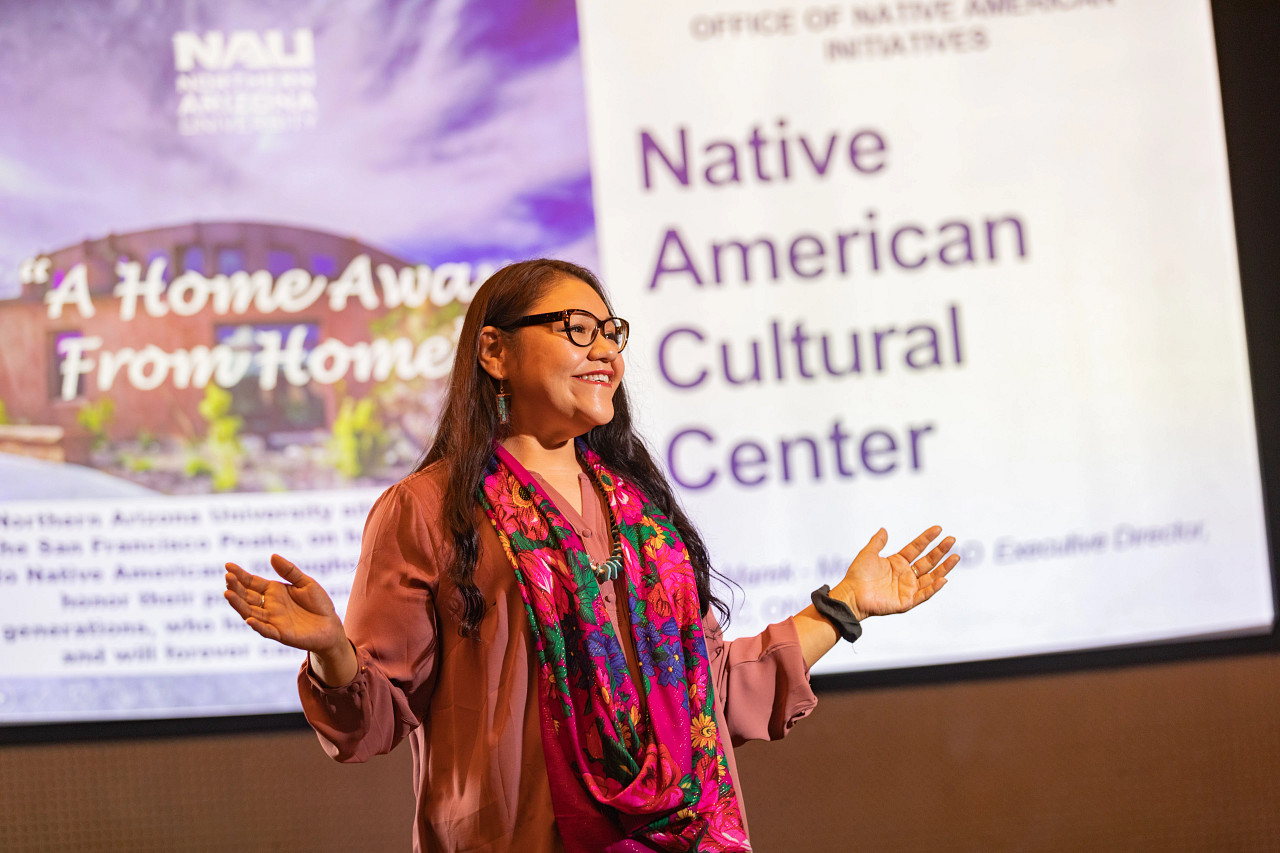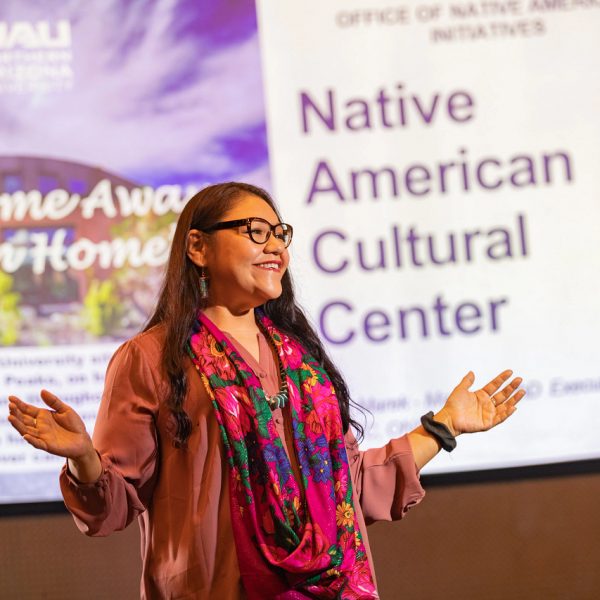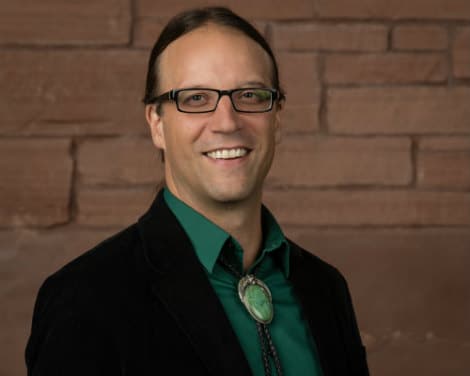NAU amplifies Indigenous voices on our many platforms, enriching lives and improving our community.
The influence of Native American perspectives and cultures is evident everywhere at Northern Arizona University. Faculty, staff, and students from many backgrounds bring ways of knowing to the NAU family that lead to action, answers, and expression on campus—and continue into the larger world as alumni.
Improving the national monument in her backyard
Kelkiyana Yazzie is the fourth generation of her family to work as a National Park Service employee at Navajo National Monument, five miles from where she grew up in Shonto, Arizona.
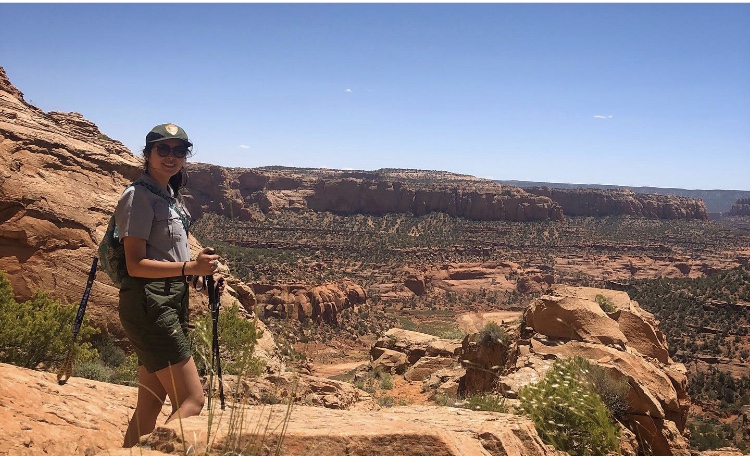
Now Kelkiyana is pursuing an online Master of Science in Parks and Recreation Management through NAU. Her studies include a capstone project designed to help revamp the park’s interpretive materials to be more interactive, accurate, and comprehensive in representing the Native American cultures that have flourished there for centuries.
The online degree allows her to study where she lives and still network with other students in her cohort from all over the country, many of whom are also federal employees.
“I plan to be at Navajo National Monument forever,” she said. “I really love the park and all the interactions with visitors who think this is a hidden gem! I just see so much that could make the visitor experience better. I feel like our park deserves a superintendent who is 100 percent about the park and employees. My career aspiration is being superintendent of Navajo National Monument.”
Developing forestry stewards for the future
Jonathan Martin (BS Forestry, ’85; MS Forestry, ’91) spent three decades in a forestry career with the Navajo Nation Tribal Forestry Department and the Bureau of Indian Affairs and Forestry. Now he directs the Native American Forest and Rangeland Management Program in the Ecological Restoration Institute, which helps ensures forestry professionals include Native voices and practices as part of tribal land management.
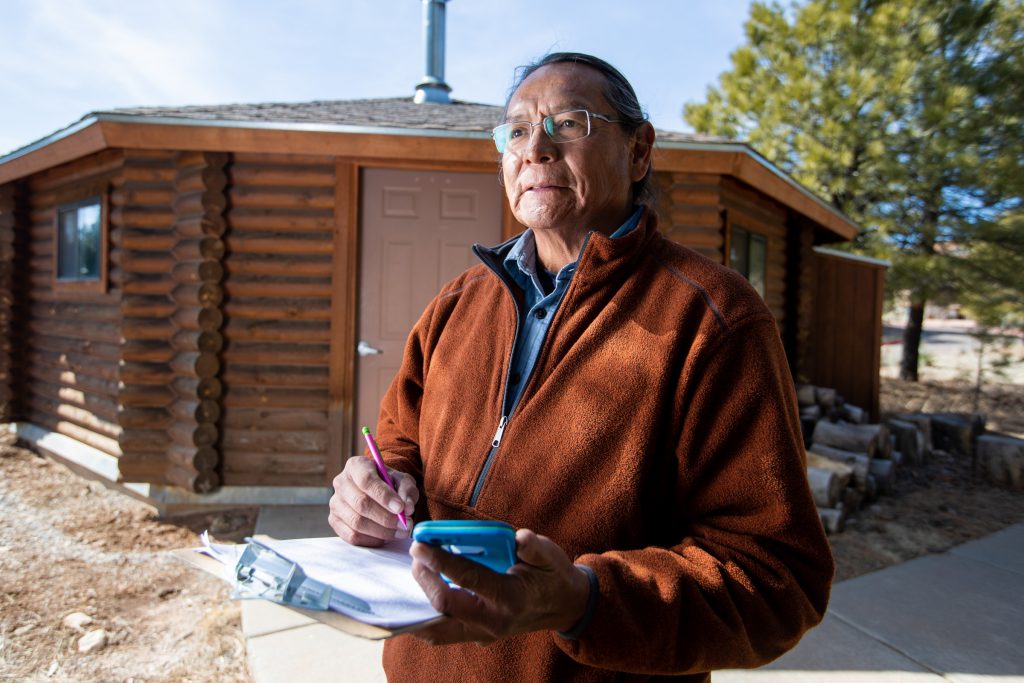
“There are subtle differences between tribal management and management of US forest lands,” Martin said. “I have to continually link it to culture. I think there’s definitely a more culturally sensitive tone of management. It’s not industrial. It’s not money-driven. It’s more about nurturing the land for the benefit of future generations. I’m excited to think that what I’m doing now is laying the groundwork for a program that will be around for a while and will result in good things happening on tribal lands.”
Leading a nation through crisis
When the Navajo Nation was hit hard in the early days of the COVID-19 pandemic, President Jonathan Nez (BA Political Science, ’02; Master of Public Administration, ’05) and First Lady Phefelia Herbert-Nez (BA Political Science and BS Criminal Justice, ’05) made a heroic effort to flatten the curve.
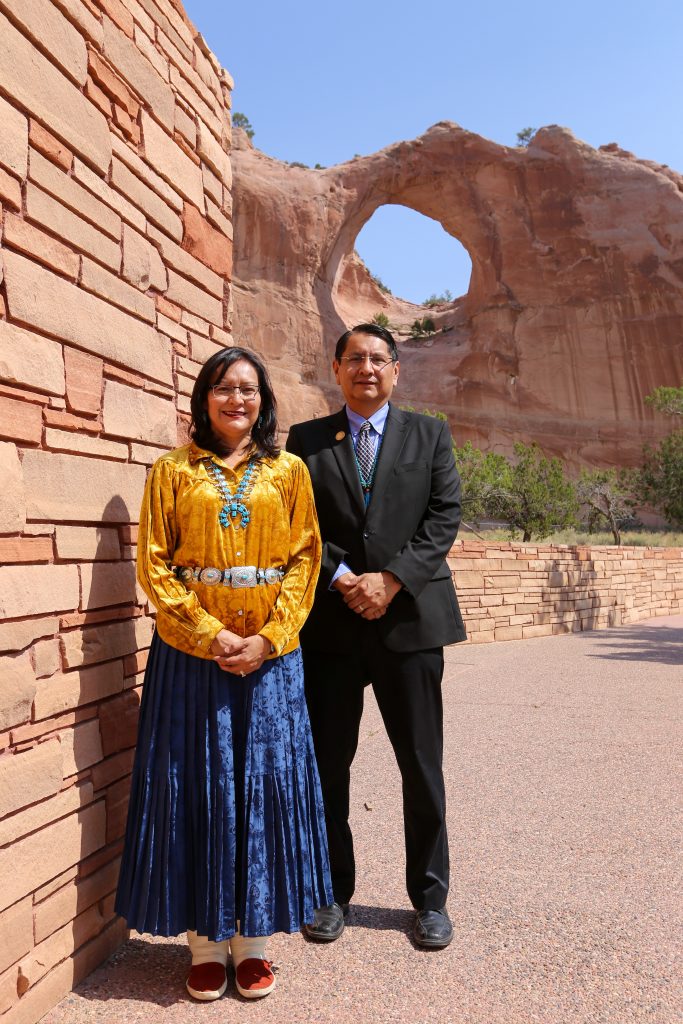
President Nez took decisive action against the virus. His government implemented curfews, aggressive testing, and contact tracing, while mandating mask-wearing and physical distancing. They carried the message door-to-door.
While the Navajo Nation has suffered more deaths per capita than any US state, their offense against the virus worked. The case numbers soon dropped, and stayed down. This achievement is testimony to the collective will of the Navajo community.
Chronic health problems, the result of systemic economic and health disparities, have made Native American populations particularly vulnerable to the pandemic. But with strong leaders like Nez and Herbert-Nez to lead their community, the Navajo Nation has become a success story in stopping the virus.
“People are asking, ‘How did the Navajo do it?’” Nez says. “There’s no secret formula. We just followed the guidance of public health professionals. But we also relied on our Way of Life teaching. We framed it in a way to say, ‘You need to wear your mask because you’re protecting our elders, the ones who hold the teaching for our future.’”
Growing up, First Lady Phefelia Herbert-Nez saw firsthand the complexities of tribal politics, and she knew she wanted to take an active role in transforming words into action.
“My dad always used to tell us, ‘The whole world is your home.’ He didn’t limit us within the four sacred mountains,” she says. “But he did say, ‘Wherever you end up living, you need to make sure you become aware of the issues, the needs that are there, and choose to help.’”
President Nez says one key to his leadership journey has been knowing how to adapt what he learned at NAU. In the MPA program, for example, he had coursework in “alternative dispute resolution.”
“But it’s not alternative for us,” Nez says. “It’s what we call peacemaking. Effective leadership in tribal communities is using what you learn in the university and blending it with our teachings. And that’s very powerful.”
Creating verse for our times
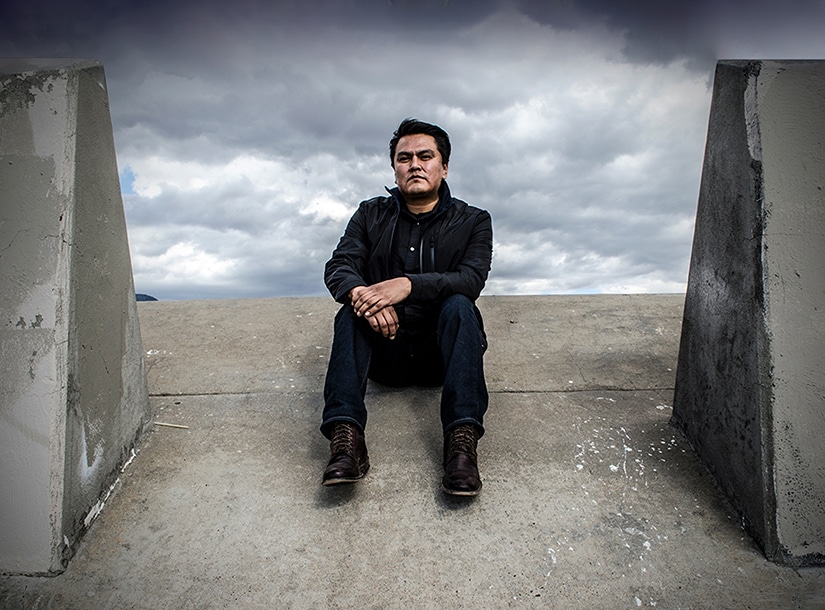
Sherwin Bitsui has authored three books of poetry and won multiple book awards and literary fellowships. As assistant professor of creative writing in NAU’s MFA Creative Writing program, the acclaimed poet from White Cone, Arizona, on the Navajo Nation, shares his expertise to help students express themselves through their own prose and poetry.
Bitsui begins one poem:
They inherit a packet of earth
hear its coins clank in a tin box
Read the rest of [They inherit a packet of earth].
Expanding from metal to Mozart
Sage Bond and her self-proclaimed “Cookie Monster scream” is quite literally finding her voice at NAU.

Having spent ten years singing independently and in a heavy-metal band, Bond, who is Navajo and Apache, is discovering possibilities in a much older musical form.
“I’d never had a music class before starting with the School of Music. I had to teach myself before the audition how to sing opera,” she said. “I feel like I barely made it through.”
Professor Todd Sullivan, former director of the School of Music, encouraged Sage to attend NAU after he heard her sing at NAU’s Prochnow Auditorium and watched her YouTube videos. After transferring from Diné College, Bond is pursuing a bachelor’s in Music with an emphasis in voice and a minor in Psychology.
“My teacher is finding ways to utilize my energy from that metal vocal style and putting it into opera,” she said. “We’re both just learning about all these new things about me.”
Applying Indigenous studies for a robust future
Applied Indigenous Studies is an interdisciplinary program led by faculty from diverse backgrounds, including Navajo, Choctaw, Kahnawake Mohawk, Spokane, and Pasqua Yaqui.
Working across campus with other NAU academic departments, AIS prepares students to address the unique aspects of nation-building, leadership, governance, and self-determination in a wide variety of career paths.
“Graduates from our one-of-a-kind program are ready to apply what they’ve learned to solving real-world problems facing Indigenous country,” says Karen Jarratt-Snider, Chair of Applied Indigenous Studies. “The AIS program applies Native ways of knowing for the benefits of Indigenous communities within the United States and abroad.”
NAU offers many unprecedented opportunities for students to apply traditional ways of knowing to contemporary contexts.
A prime example is the Indian Country Criminal Justice online bachelor’s degree, taught by tribal leaders. The only degree of its kind in the country, the program provides specialized skills needed for today’s workforce to make a better society. Whether through minors in Health Studies, Native American Studies, or Tribal Public Administration; an Indigenous and Tribal Nation-building Graduate Certificate; or many other programs, NAU ensures Indigenous voices are included to make a better society.

